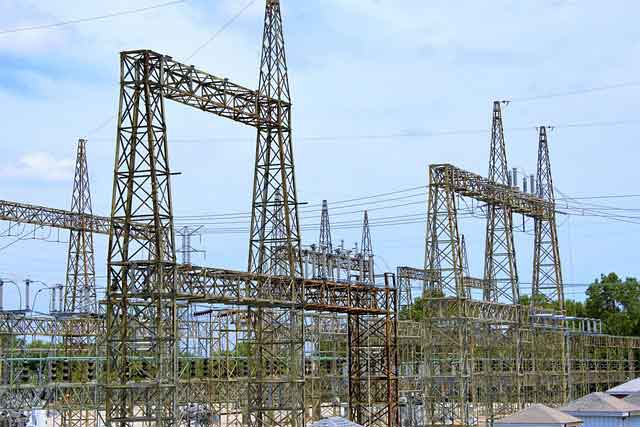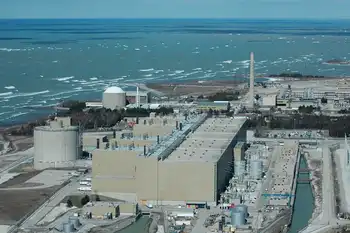Enron Seeks Bankruptcy Protection, Sues Dynegy Over Failed Acquisition Deal
- The unraveling of Enron Corp. came to a head Sunday when the company said it had filed for Chapter 11 bankruptcy protection from creditors in what bankruptcy analysts said was the largest such filing in history.
In a shot at the company that Enron hoped would be its savior, Enron sued crosstown rival Dynegy Inc. for at least $10 billion for bolting last week from its merger pact with the Houston-based energy titan.
Both filings took place in U.S. Bankruptcy Court for the Southern District of New York.
In the Chapter 11 filing, total assets of Enron and 14 of its subsidiaries were $49.8 billion, and total debts were $31.2 billion. Among the largest creditors were Citigroup Inc., J.P. Morgan Chase & Co., and Bank of New York Co.
Enron said that it is in active discussions with financial institutions to recapitalize and provide credit support for its North American energy trading business under a new ownership structure.
In the suit, Enron accused Dynegy of wrongful termination of the proposed $8.4 billion merger.
Enron spokesman Vance Meyer said Dynegy violated the merger agreement with the termination.
Dynegy pulled out of the merger Wednesday after credit-rating agencies downgraded a large portion of Enron's debt to "junk" status. Dynegy cited circumstances that triggered the "material adverse change" provision in the agreement.
Dynegy officials said the company was within its right to pull out.
"Dynegy has not reviewed the Enron litigation," spokeswoman Jennifer Rosser said. "However, as we stated last week, we are constant in our position as it relates to the exercising of the material adverse change provision of the merger agreement.
"We believe we were within our legal right to exercise the provision, that it would have been a breach of fiduciary responsibility to shareholders not to do so."
The material adverse change provision didn't outline specific events that had to happen before the merger could be terminated to give shareholders the broadest protection, Ms. Rosser said.
"By design, it does not outline specific things that could happen, but it relates to any general material adverse change that would have occurred," she said.
The merger agreement included a $350 million breakup fee, but Ms. Rosser said that would apply only if a higher bid than Dynegy's emerged for Enron. When Dynegy pulled out of the merger, company officials said that neither party was obligated to pay the fee.
In its suit, Enron asked the court to declare that Dynegy isn't entitled to exercise its option to acquire an Enron subsidiary that indirectly owns Northern Natural Gas Pipeline, one of Enron's most valuable assets.
Dynegy used $1.5 billion contributed by ChevronTexaco Corp., which owns 26 percent of Dynegy's common shares, to purchase all the preferred stock of Northern Natural.
The pipeline operation based in Omaha, Neb., owns 16,500 miles of interstate natural gas pipeline spanning from the Permian Basin of Texas to the Great Lakes.
"It has historically been a strong earnings contributor and will be a positive addition to Dynegy's energy delivery network," Dynegy officials said last week.
The company was within its right to exercise its option regarding Northern Natural, Ms. Rosser said. But Enron said in its statement that the option could only be triggered by a valid termination of the merger agreement.
"From an operational standpoint, our energy business, including our pipelines and utilities, are conducting normal operations and will continue to do," Kenneth L. Lay, Enron chairman and chief executive, said in the statement. "While uncertainty during the past few weeks has severely impacted the market's confidence in Enron and its trading operations, we are taking the steps announced today to help preserve capital, stabilize our businesses, restore the confidence of our trading counterparties and enhance our ability to pay our creditors."
Enron said proceeds from the lawsuit would benefit its creditors.
As Enron scrambles to regain the confidence of investors and business partners, it faces competitors that are busy trying to scoop up market share created by Enron's whirlwind collapse.
"We have a major effort going on in that direction," said Al Butkus, spokesman for Aquila Inc.
The bankruptcy filing was a culmination of several fast-moving events.
Enron's decline began quickly after the disclosure of mounting losses involving partnerships run by Andrew Fastow, its chief financial officer.
The company ousted Mr. Fastow in October and restated its financial statements for the past five years to account for $586 million in losses.
Enron said in the statement that it would provide the reorganized energy trading business with traders, back-office capabilities, and technology from its North American wholesale energy business. "The new entity would conduct counter-party transactions through EnronOnline, the company's existing energy trading platform," Enron said.
Any such arrangement would be subject to approval of the U.S. Bankruptcy Court, it said.
To conserve capital, Enron will implement a comprehensive cost-saving program that will include substantial workforce reductions.
Those job cuts will primarily affect the company's operations in Houston, where Enron employs about 7,500 people.
Enron said it would ask the court to consider several "first day motions" to continue payments for its workers' payroll and health benefits, as well as for keeping vendors paid.
The company is also talking with financial institutions about obtaining debtor-in-possession financing and expects to complete those discussions shortly.
A debtor-in-possession is a Chapter 11 debtor that operates its own business and remains in possession of its assets and property.
Related News

Pennsylvania Home to the First 100% Solar, Marriott-Branded U.S. Hotel
LANCASTER, PA - High Hotels Ltd., a hotel developer and operator, recently announced it is installing a $1.5 million solar array that will generate 100% of the electrical power required to operate one of its existing hotels in Greenfield Corporate Center. The completed installation will make the 133-room Courtyard by Marriott-Lancaster the first Marriott-branded hotel in the United States with 100% of its electricity needs generated from solar power. It is also believed to be the first solar array in the country installed for the sole purpose of generating 100% of the electricity needs of a hotel.
“This is an exciting…




